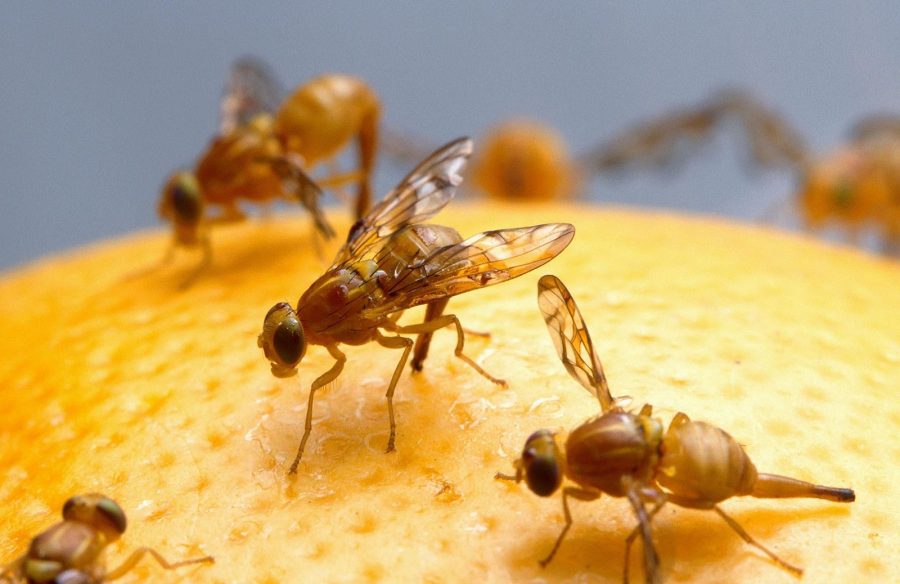This week’s Fall 2016 Biology Seminar Series was a symposium on Drosophila, or fruit flies. The symposium was held by Professor Alexey Veraksa of the University of Massachusetts Boston and Professor James Walker of Harvard Medical School. The event was held in the Ballroom of the Campus Center, where many students from different fields of science came to learn about research on the subject conducted at different universities from all over the state.
“It has been a favorite model for research for 100 years now, and the Boston area has a lot of fly research…we haven’t had a formal meeting on the topic in the Boston area so we decided it would be a good idea to have one,” said Veraksa.
The symposium provided just that opportunity, and was even followed by a screening of the film “The Fly Room,” directed by Alexis Gambis. It will be released to the public on Sept. 29.
The movie is about the early days of Drosophila genetics. It presents an account of Thomas H. Morgan’s lab discovery of the chromosomal theory of inheritance and the relationships of the people working in his lab about 100 years ago.
The symposium featured 12 different research studies that showcase why fruit flies are the choice model system for understanding genetics and development. The research ranges from stem cell inhibitors in tumors to receptors and nuclear movement to establishing a newer model of chromosomes on Drosophila.
Here are some of the featured scientists and their researche:
Michelle Markstein from UMass Amherst presented her research on the chemotherapeutic stem cell tumors on Drosophila. Her research focused on ways to find stem-cell inhibitors derived from a tumor, using a tumor model in adult Drosophila intestine. Her research found that some FDA-approved chemotherapy can inhibit the growth of tumor stem cells that can hyper-proliferate certain genes that may contribute to tumor recurrence.
Zachary A. Knecht of Brandeis University presented his findings on “Ionotropic Receptor mediated detection of Humidity.” Looking into a large subfamily variant of ionotropic glutamate receptors, which have a role in the chemosensory detection of insects, he and his team characterize one of the most conserved receptors: IR93a. He demonstrated that IR93a can co-express and function with ionotropic receptors 21a and 25a to mediate the behavioral and physiological responses to the temperature system of Drosophila, which is important for neuronal responses and behavioral discrimination of different humidity levels.
Susan Gerbi of Brown University presented her finding on a new toolbox for fly Sciara, a model system that disobeyed the rules of spindle movement on chromosomes. Fly Sciara has been a model system to study chromosome mechanisms with unique biological features. Gerbi and her team have now developed a toolbox that enables Sciara research, with a complete genome of the species, and developed a method to better manipulate Sciara genome and many other functions.
Fall 2016 Biology Seminar Series: Drosophila Symposium
September 24, 2016





















































